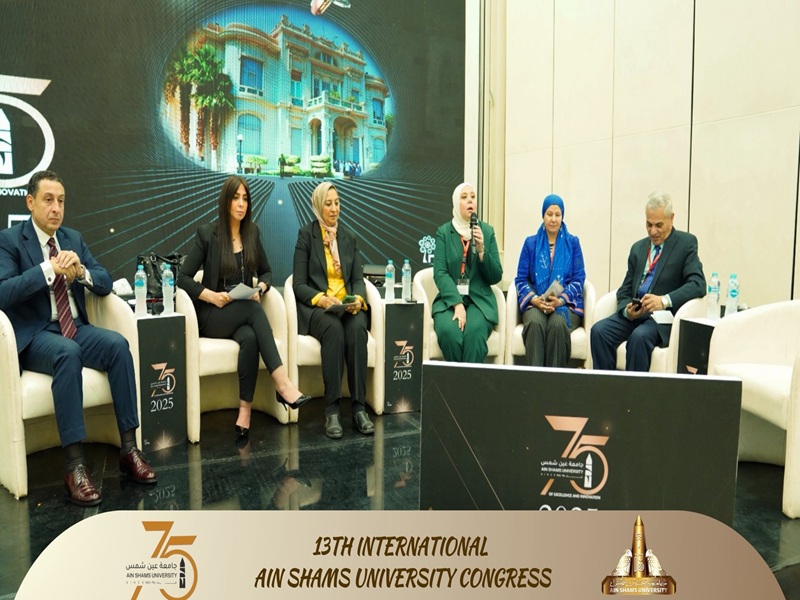The Fourth Annual Conference of the Women's Support and Anti-Violence Unit, titled "Justice, Equity, and Inclusion," was launched as part of the 13th Ain Shams University Scientific Conference
Under the patronage of Prof. Mohamed Diaa Zain El-Abedeen, President of Ain Shams University, Prof. Ghada Farouk, Vice President for Community Service and Environmental Development, and Prof. Amani Osama Kamel, Vice President for Graduate Studies and Research, and under the supervision and coordination of Prof. Hind El-Hilali, Executive Director of the Women's Support and Anti-Violence Unit at the University, the fourth annual conference of the Women's Support Unit was launched under the title: "Justice, Equity, and Inclusion." The conference was held as part of the 13th Ain Shams University International Conference, "75 Years of Leadership: An Eye on the Past and a Sun Enlightens the Future."
Prof. Ghada Farouk expressed her happiness at the conference, emphasizing that this event reflects Ain Shams University's true commitment to women's empowerment and combating all forms of discrimination and violence against them. She emphasized that women have always been and continue to be a fundamental pillar of development and social justice.
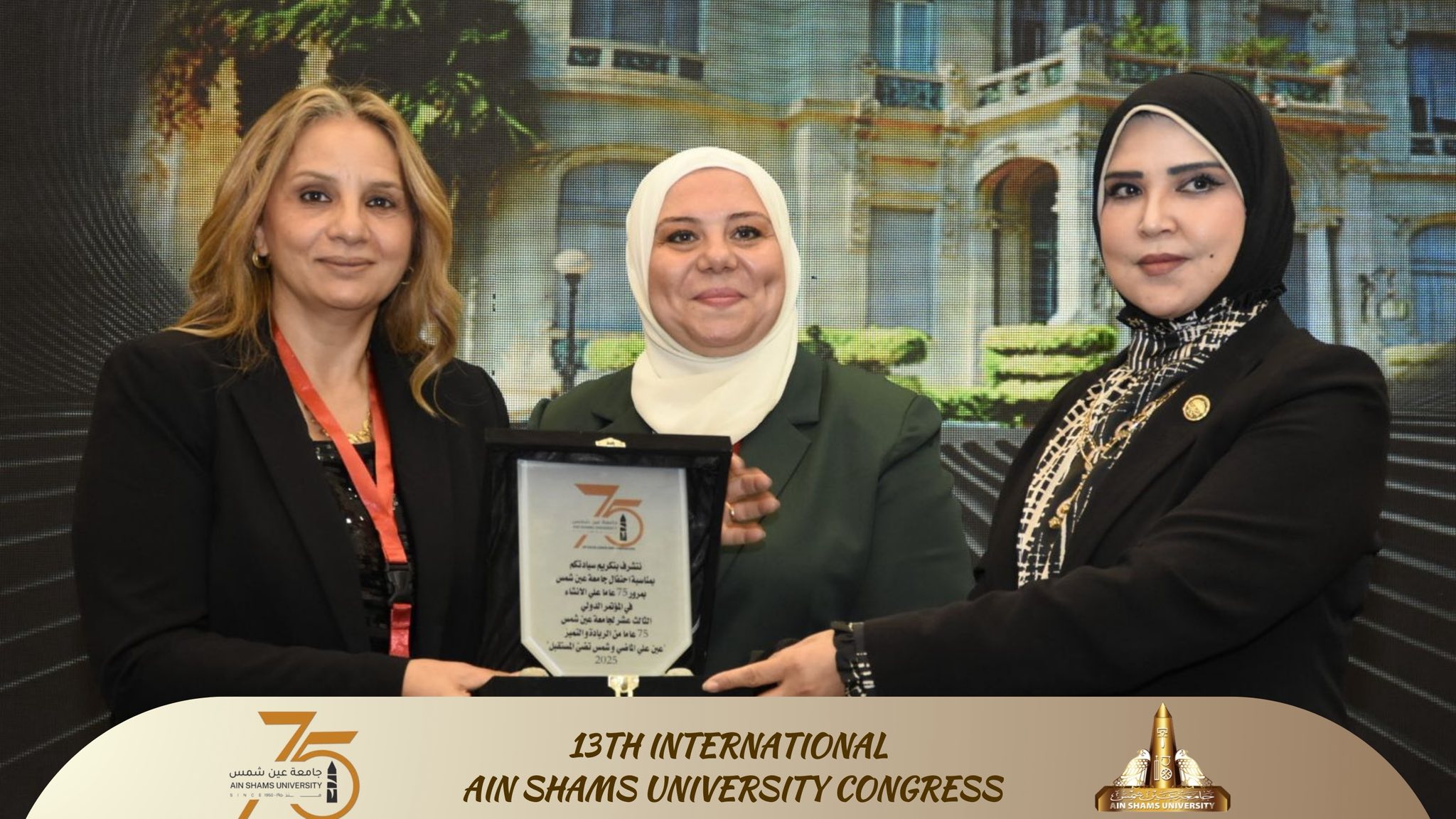 |
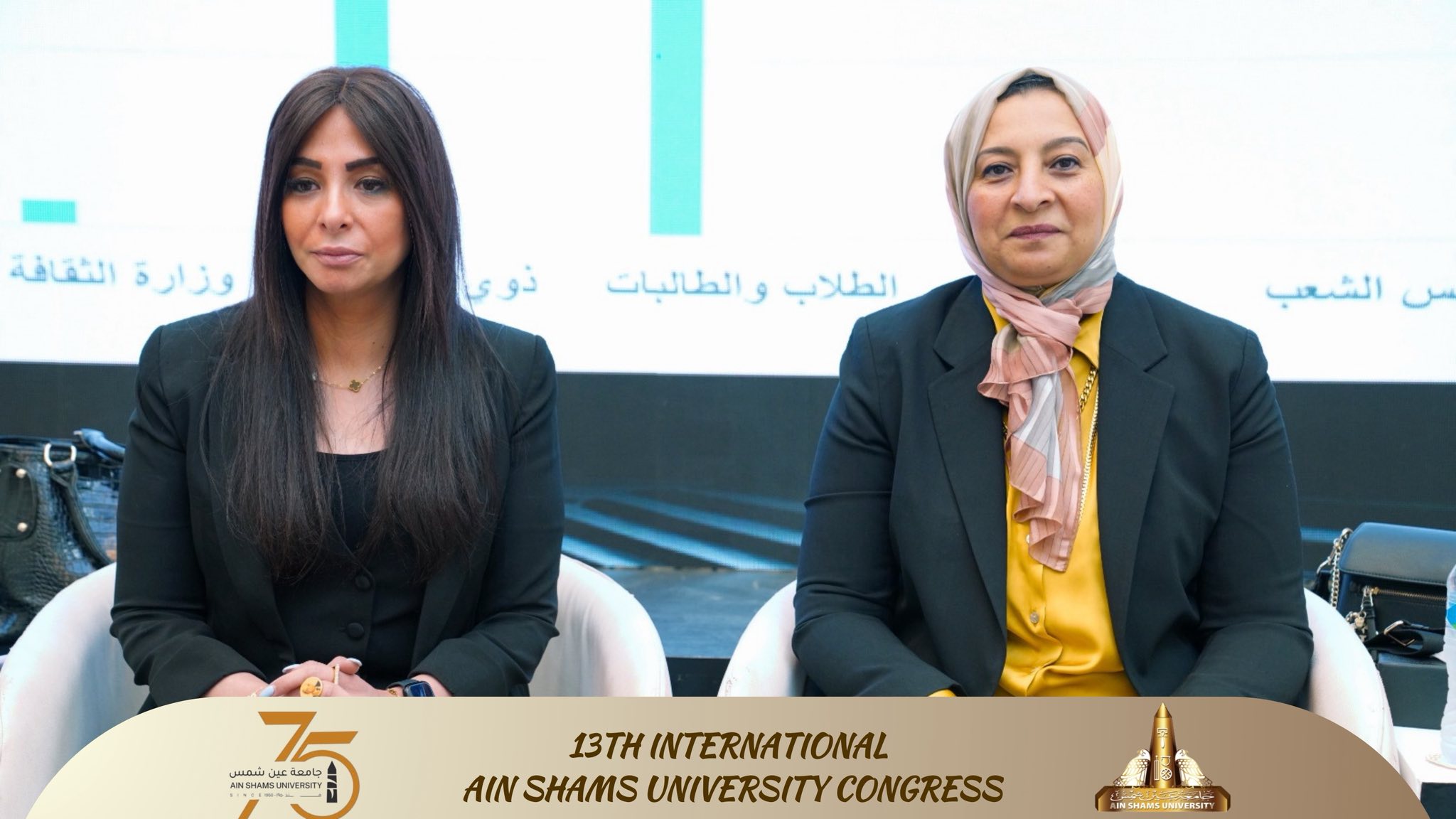 |
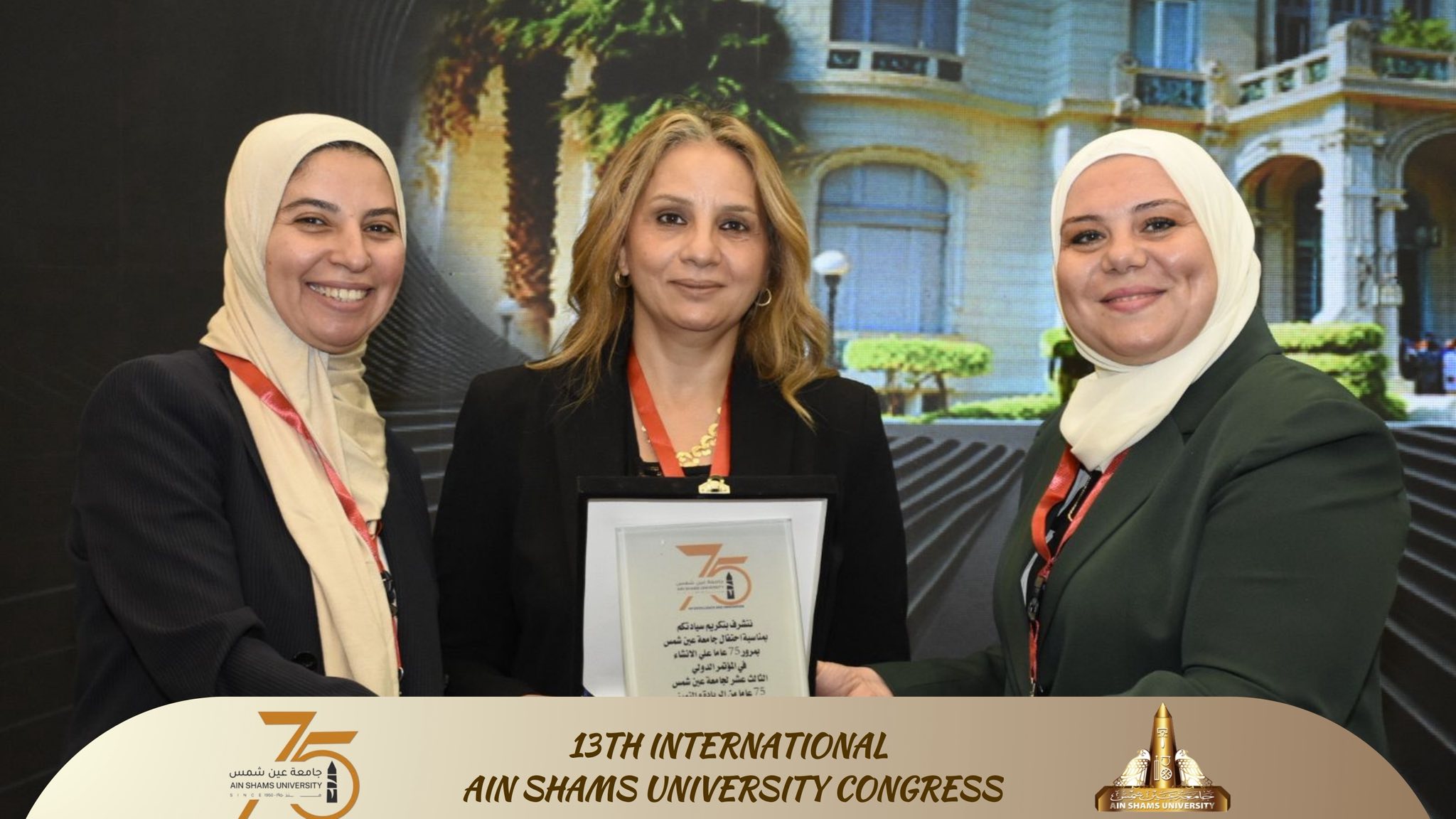 |
||
She emphasized that achieving justice, equity, and inclusion is not a developmental luxury, but rather a fundamental right and a strategic necessity for any country striving for a sustainable future. She added that this path requires close cooperation between state institutions—legislative, executive, and judicial—along with academic and media institutions.
She emphasized that women's empowerment goes beyond slogans; it requires fair policies and legislation, effective oversight mechanisms that ensure implementation, and a social environment that supports women's full participation in public, political, and economic life.
In concluding her remarks, Dr. Ghada Farouk thanked everyone who contributed to organizing the conference, praising it as an important annual platform for exchanging visions and formulating realistic solutions to build a more just and equal society.
Dr. Hind El-Hilali explained that this year's conference theme, "Justice, Equity, and Inclusion," reflects the unit's vision of building a just and inclusive university community that embraces everyone without discrimination. Coinciding with Ain Shams University's 75th anniversary celebration, the university continues its leadership in supporting pioneering community practices by establishing the first and oldest unit to combat violence and support women among Egyptian universities.
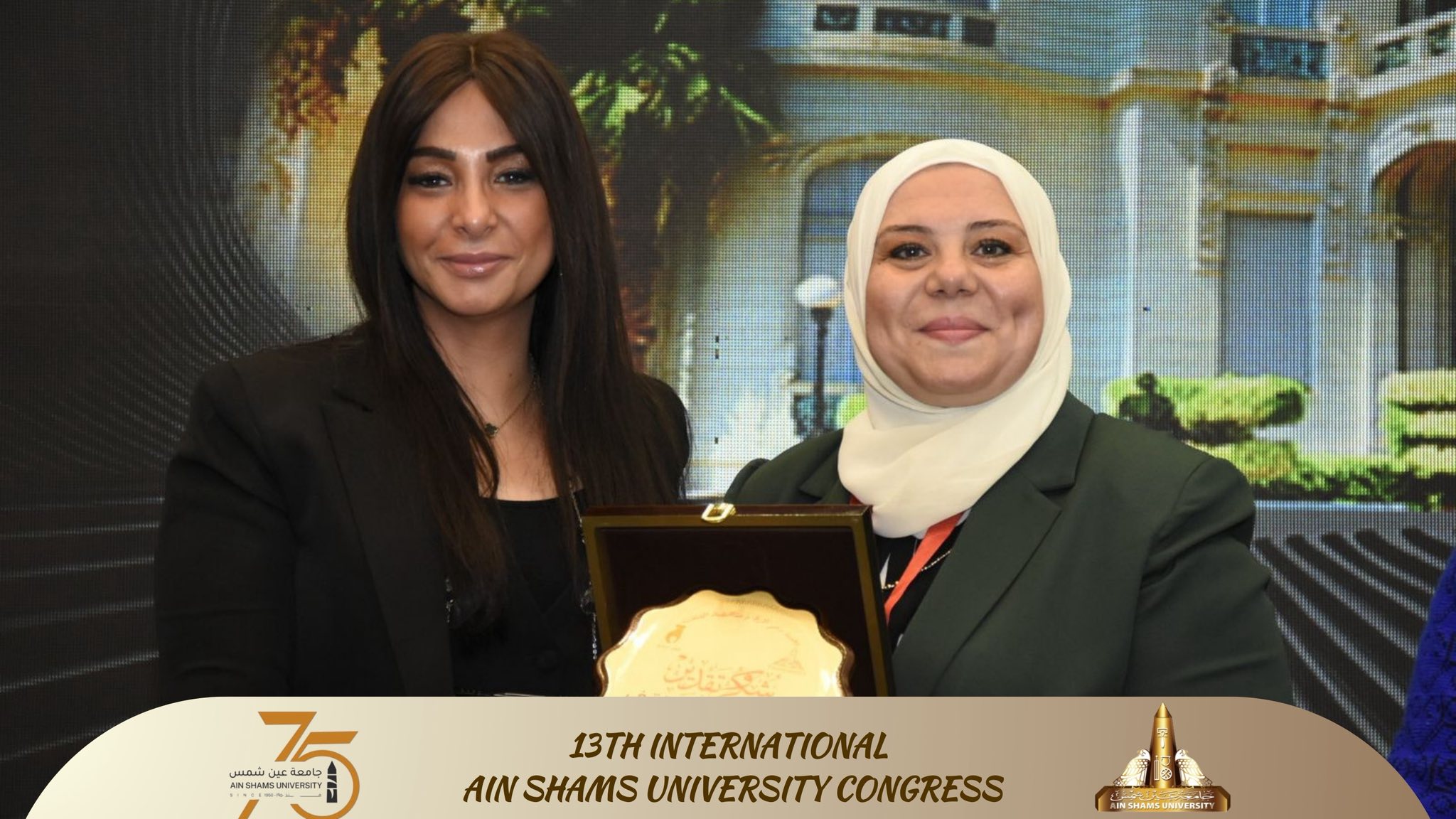 |
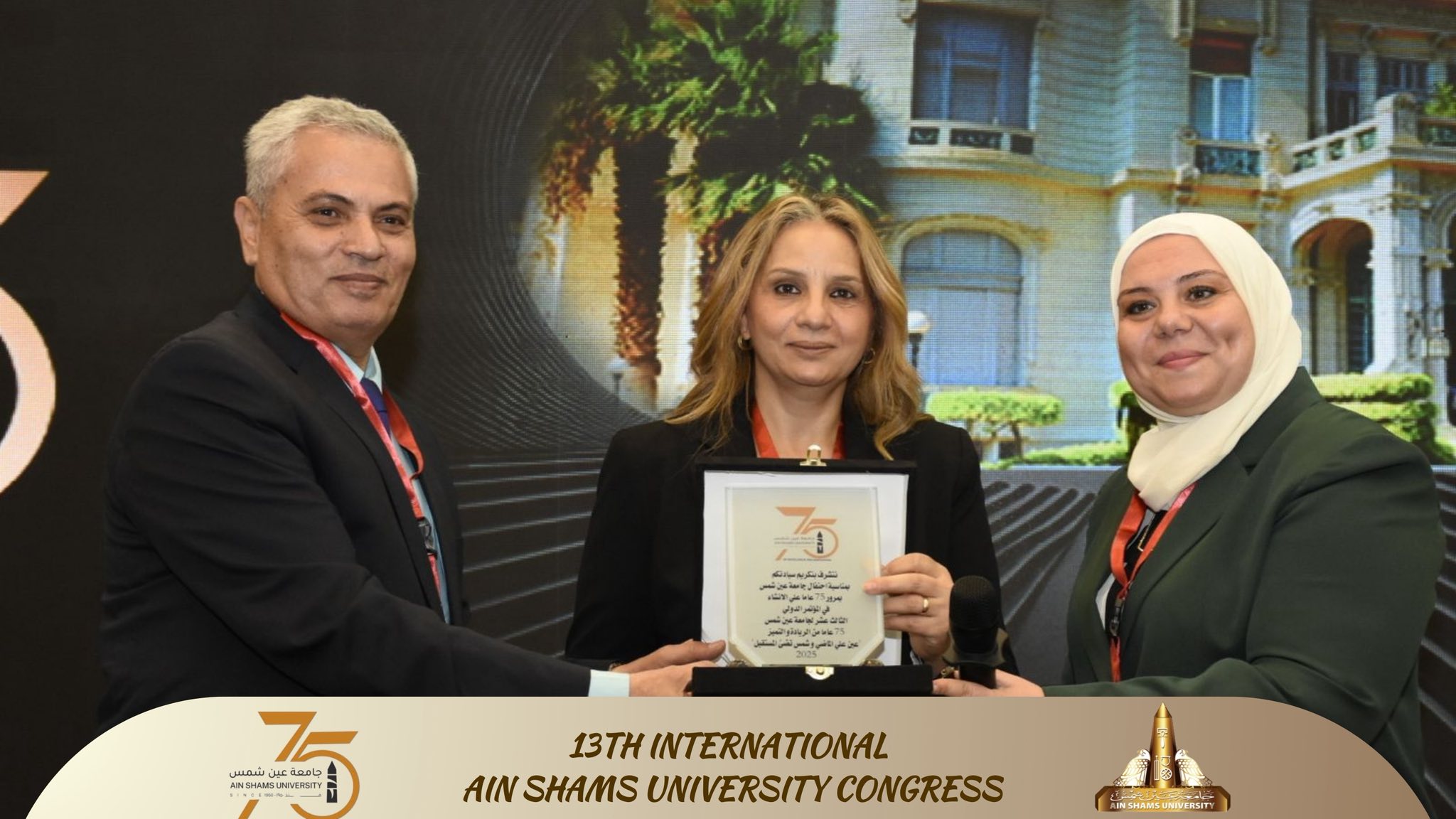 |
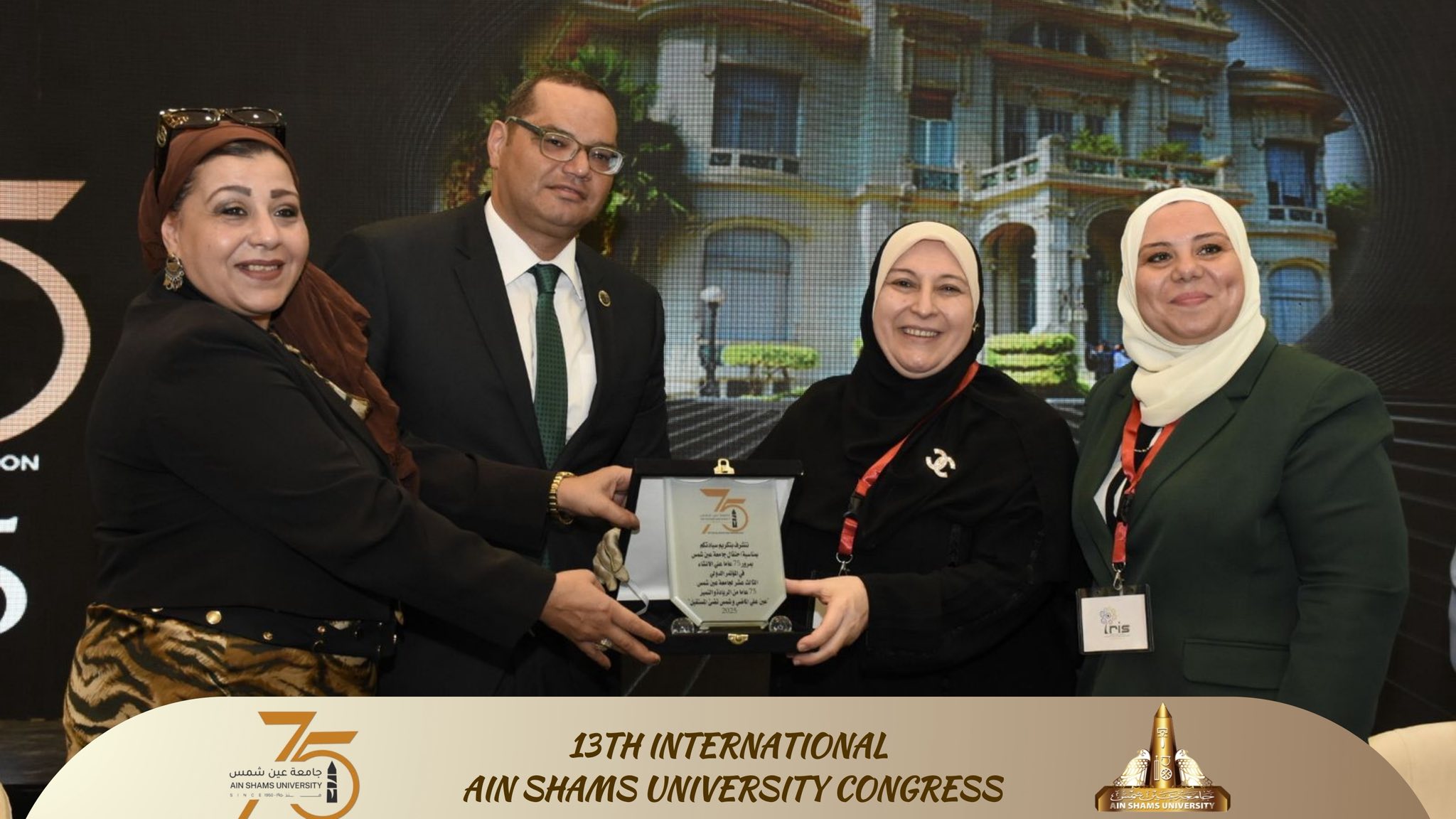 |
||
She emphasized that the Women's Support and Anti-Violence Unit, since its inception, has worked to support university women—whether students, faculty staff, or working women—not only by providing protection, but also through academic, professional, and social empowerment, and by combating all forms of violence and discrimination.
She noted that the unit provides a safe and stimulating environment by raising community awareness of women's rights and responsibilities, organizing seminars and workshops, and providing psychological and legal support to cases of violence, in cooperation with relevant authorities, to achieve sustainable development goals, particularly those related to gender equality.
She also noted the unit's distinguished multidisciplinary team of experts in psychology, law, and social counseling, while ensuring complete confidentiality when receiving complaints and suggestions. She stated that the unit cooperates with civil society organizations and government institutions to submit periodic reports to support decision-making and policy development.
The first part of the session addressed the role of state institutions in achieving equity, justice, and inclusion for women through the enactment of policies and legislation, combating discrimination and gender-based violence, enhancing women's economic, social, and political empowerment, and creating a supportive environment for their active participation in decision-making, given that sustainable development is incomplete without women's full participation.
The session was attended by Counselor Marwa Barakat, member of the National Council for Women; Representative Mervat Abdel Azim, member of the House of Representatives; Major General Mohamed Tawfik, Deputy Assistant Minister of Interior for Human Rights; Dr. Essam Azouz, representative of the National Media Authority; and Dr. Hanan Moussa, Head of the Women and Children's Sector at the Ministry of Culture.
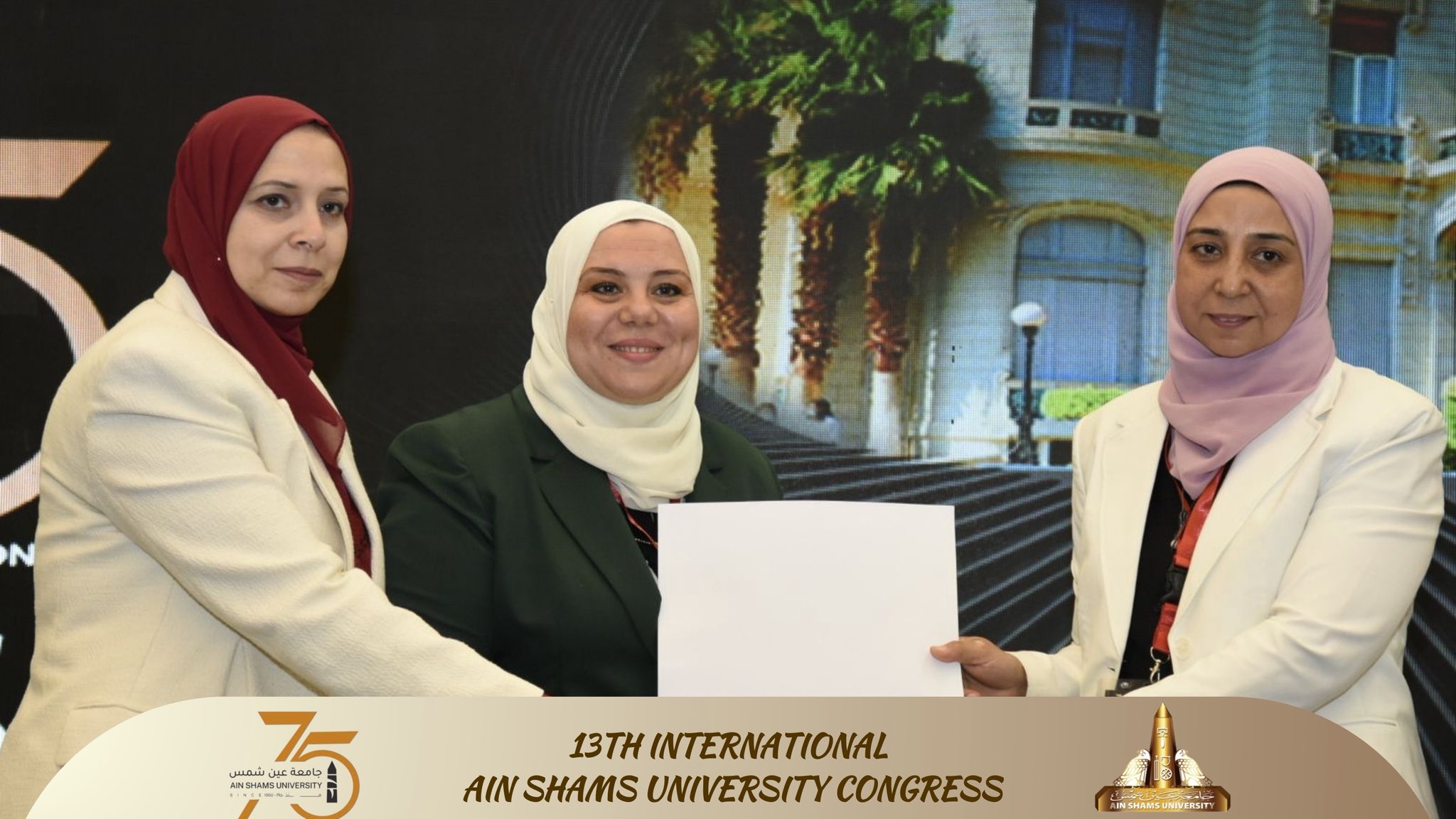 |
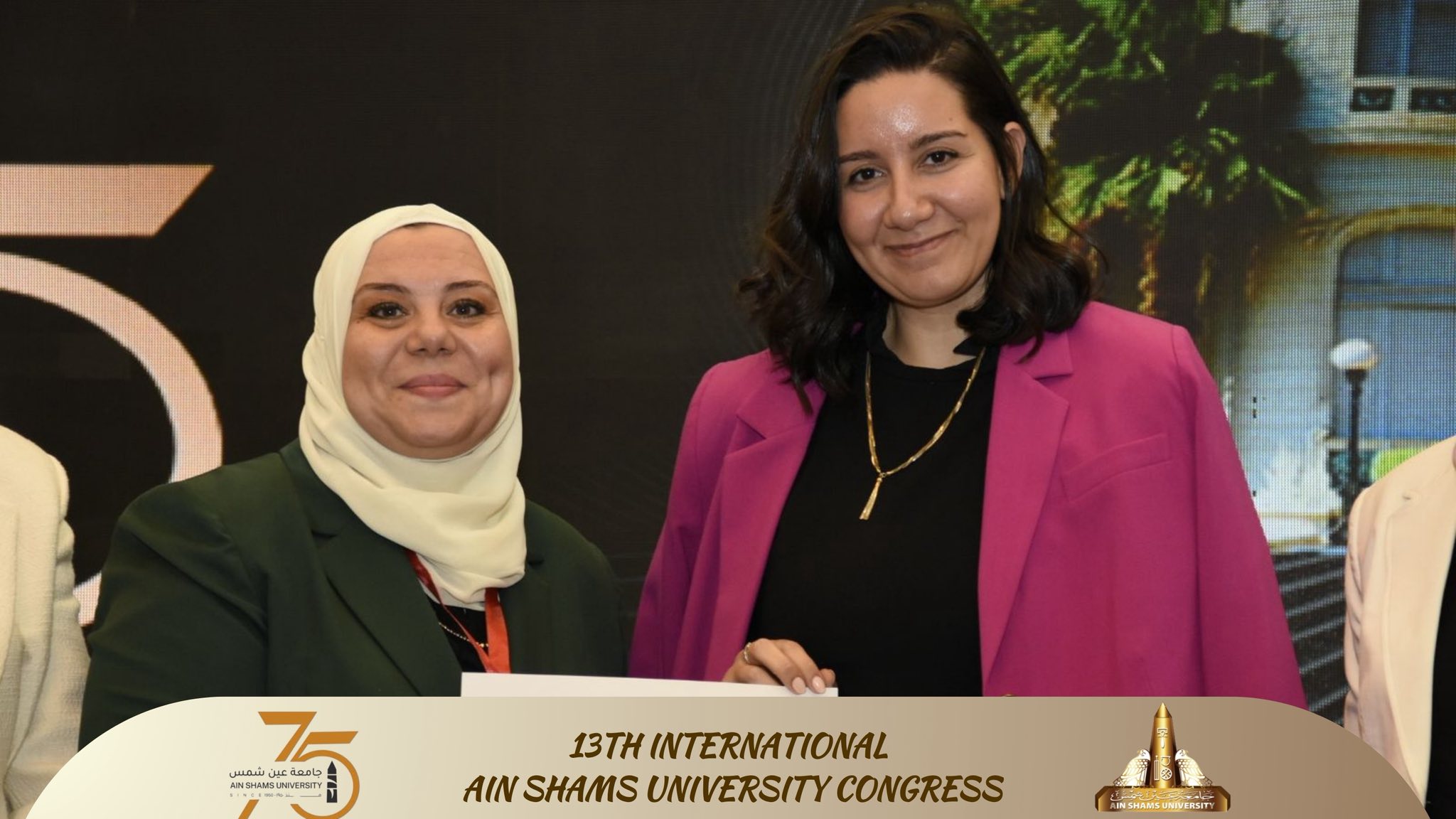 |
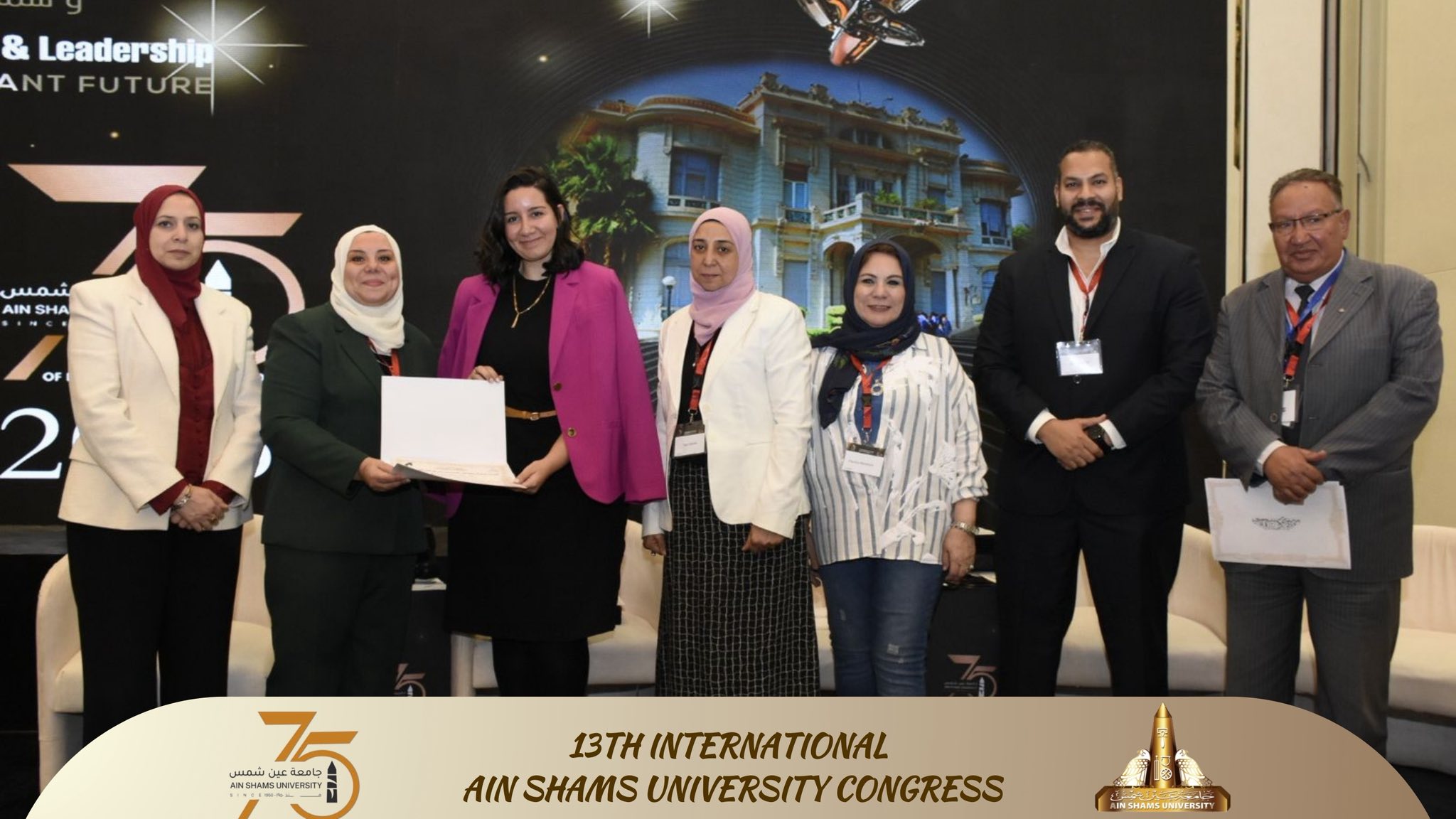 |
||
Counselor Marwa Barakat conveyed the greetings of Counselor Amal Ammar, Chairperson of the National Council for Women, and emphasized that the Council is the national mechanism for empowering women in all fields. She also reviewed the National Strategy for the Empowerment of Egyptian Women 2030, launched in 2017, noting the efforts made to achieve political and economic empowerment and protect women from violence through awareness campaigns, the establishment of anti-violence units, receiving complaints, and working to review legislation related to women's rights.
The second part of the session discussed the importance of integrating and empowering persons with disabilities as a fundamental pillar of social justice and comprehensive development, through providing an accessible environment, inclusive education, and effective participation in the labor market and society.
Prof. Hanan Kamel, Dean of the Faculty of Arts at Ain Shams University, spoke at the session on "The Role of Educational Institutions in Discovering and Developing the Skills of People with Special Needs." Prof. Rana El-Hilali, Executive Director of the Students Disability Service Center at the University, gave a presentation on "An Approach to Inclusive Community Development."
The second session addressed the role of state institutions and civil society in supporting women's small businesses through training, capacity building, and facilitating financing, which enhances women's entrepreneurship and overcomes social and legal challenges.
Speakers at the session included Representative Hanan Yashar, who discussed the role of small and micro enterprises as a mechanism for empowering women and combating violence; Prof. Yassin El-Shazly, Vice Dean for Graduate Studies at the Faculty of Law; Prof. Jihan Ragab, Professor of Marketing; and Prof. Soheir Safwat, Head of the Department of Philosophy and Sociology at the Faculty of Education.
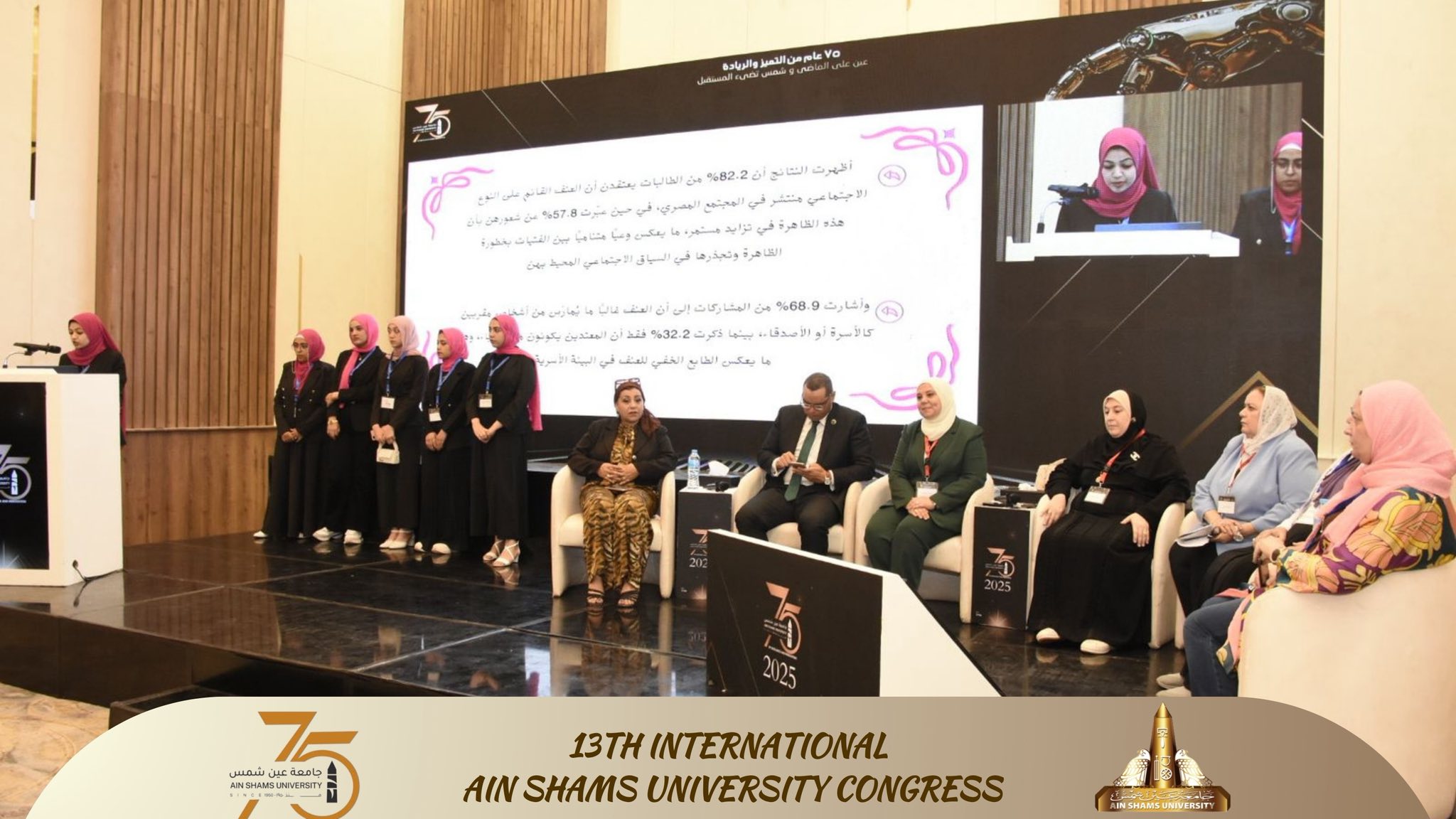 |
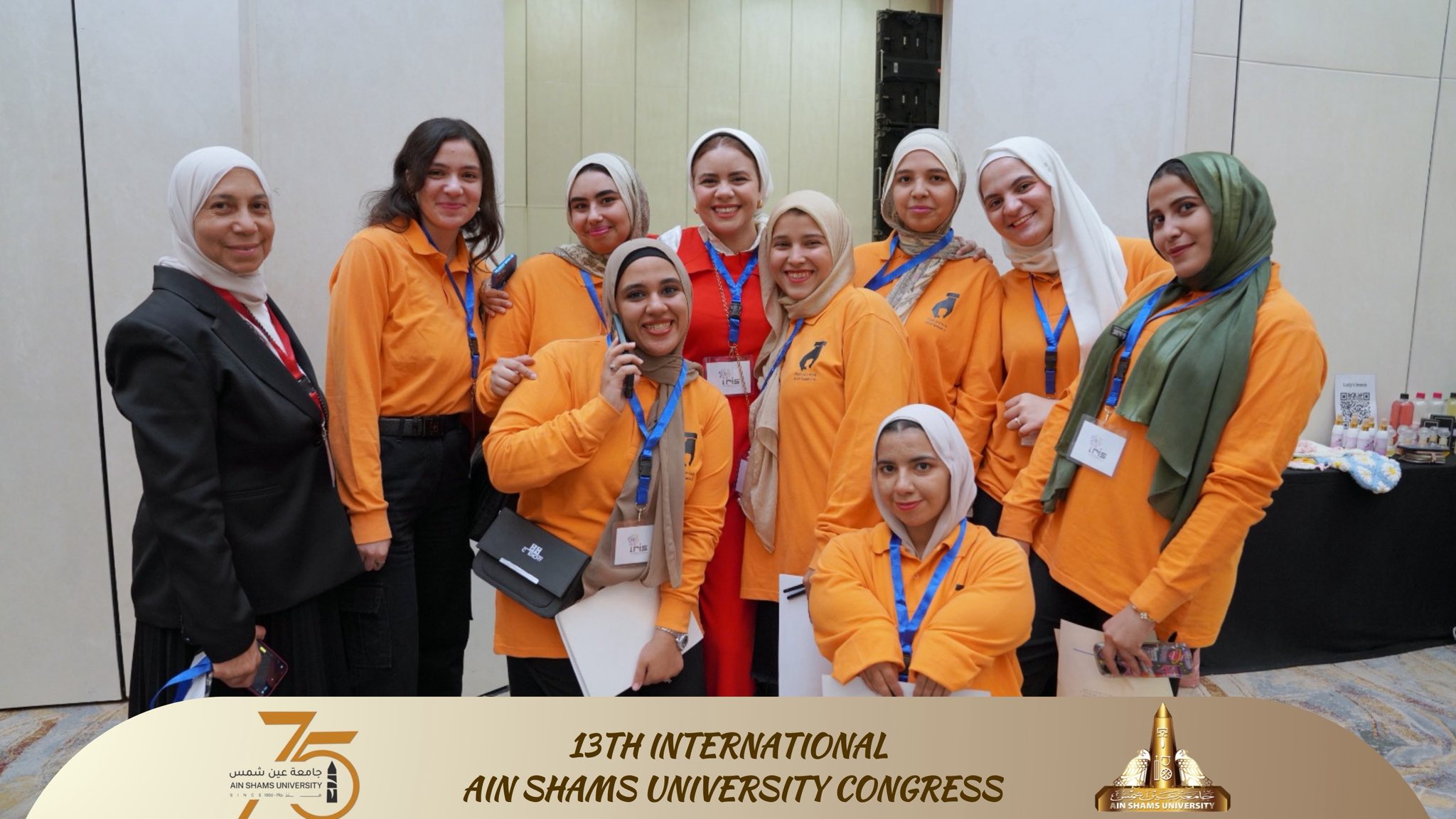 |
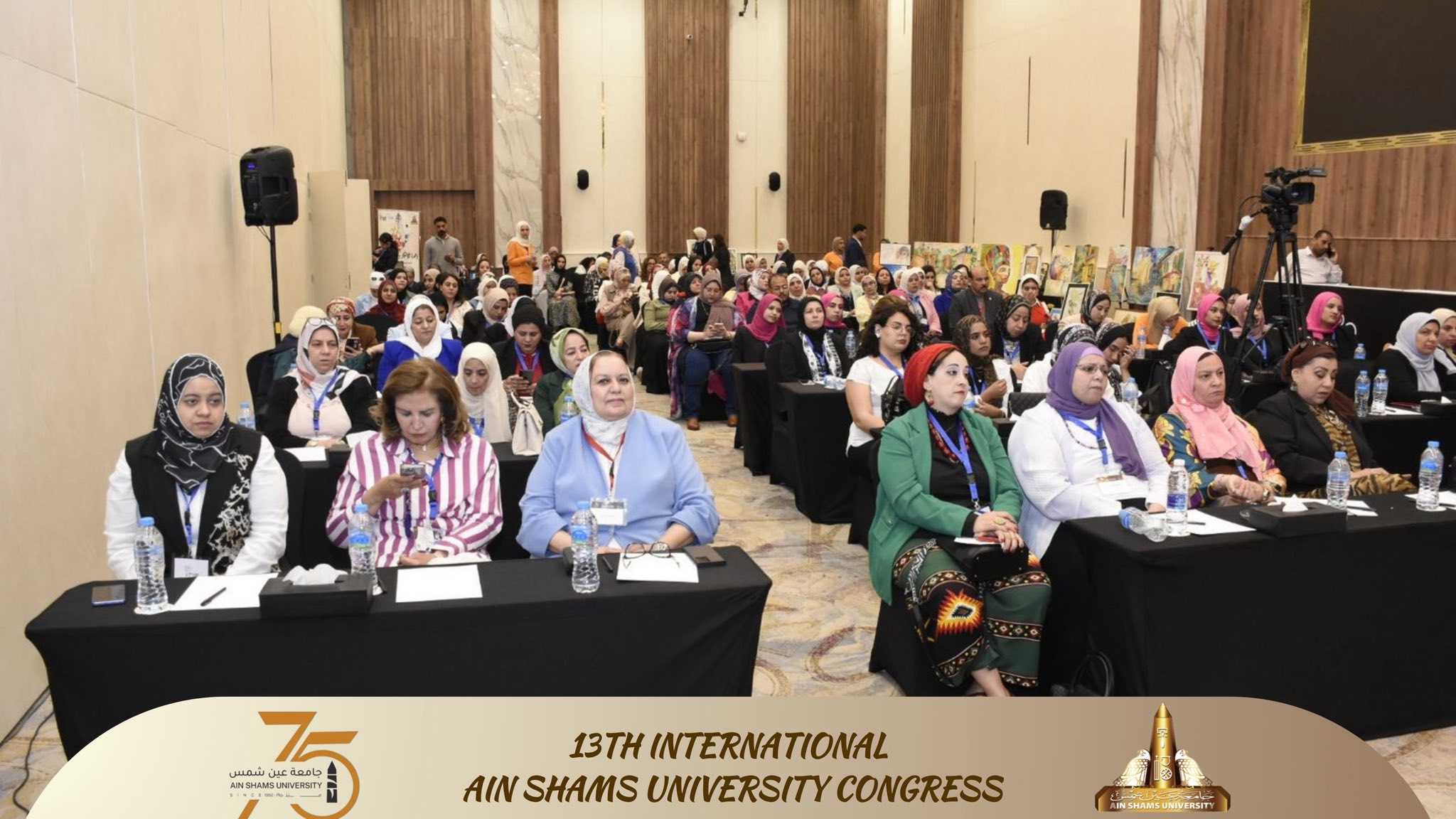 |
||
Ms. Maha Marwan, Rapporteur of the National Council for Women, Cairo Branch, explained the role of branches in empowering women and raising awareness of the services the National Council for Women provides to Egyptian women.
The conference concluded with a presentation of successful projects by female students from the Faculty of Girls at Ain Shams University, as well as research projects by students from the Sociology Department at the Faculty of Education. The session was opened by Dr. Heba Barakat, Vice Dean for Community Service and Environmental Development, who explained the importance of the conference's activities, which reflect the Faculty of Girls' commitment to its pioneering role in supporting women's issues and fostering a safe and stimulating university environment characterized by equality and respect.
The Faculty's Women's Support and Anti-Violence Unit has launched several unique projects and programs aimed at empowering female students, members, and staff, and spreading community awareness about women's rights and mechanisms for protection against all forms of violence and discrimination. These projects represent an extension of the Faculty's vision of achieving sustainable development and building a generation aware of its issues and confident in its ability to effect positive change.
We believe that empowerment can only be achieved through education, awareness, and the provision of safe spaces for dialogue and psychosocial support. Accordingly, the unit offers specialized training courses, workshops, and consultations, and works to build partnerships with civil society organizations and state agencies concerned with women's affairs.
We affirm our full support for all initiatives aimed at combating violence and building a university environment of compassion and equality, and call on all female students to engage positively with the unit's activities. You are the makers of tomorrow and the hope for the future.
In conclusion, Ms. Maha Marwan extended thanks to all those involved in these projects, and especially thanked the Women's Support and Anti-Violence Unit team for their tireless efforts.
The projects were discussed by Dr. Ismail Youssef, Secretary of the Egyptian Geographical Society; Dr. Ahmed Nasser, Career Consultant at the Gerhart Center at the American University; Prof. Sohair Safwat, Head of the Department of Philosophy and Sociology at the Faculty of Education; Prof. Fayrouz Mahmoud, Consultant at the Women's Support Unit; and Dr. Ola Sami, Director of the ASU Career Center at Ain Shams University.
Three of the best projects won, most notably the Faculty of Education's research projects, which addressed societal issues such as gender-based violence and unspoken community violence. The project, which was implemented by the Faculty of Girls, sought to improve the quality of "Damour" fabric to a texture similar to linen, allowing it to be used in clothing. Samples of the garments produced were displayed, and the participants, the winning projects, and the Women's Support Unit team, comprising consultants, specialists, and student volunteers, were honored.
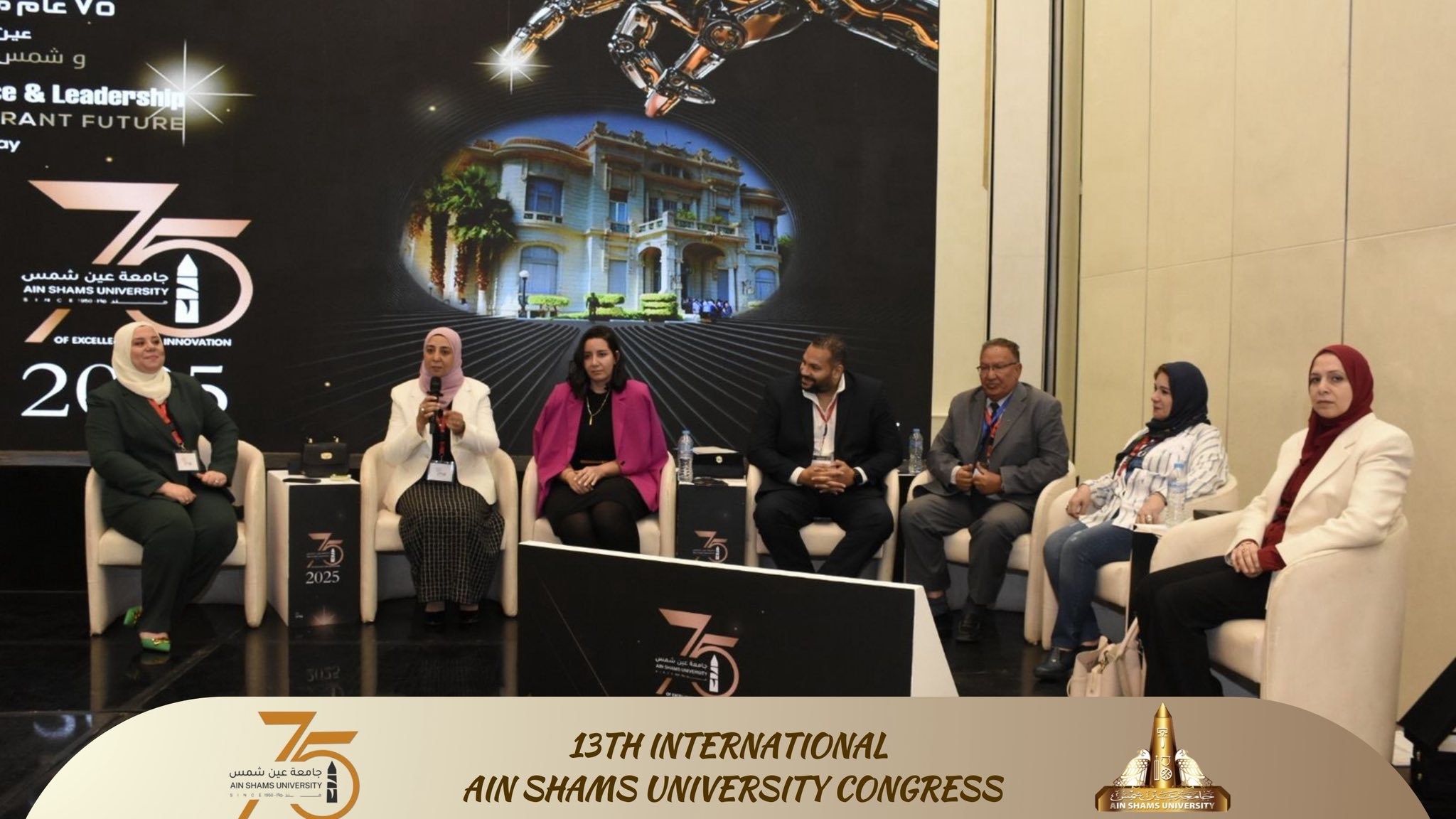 |
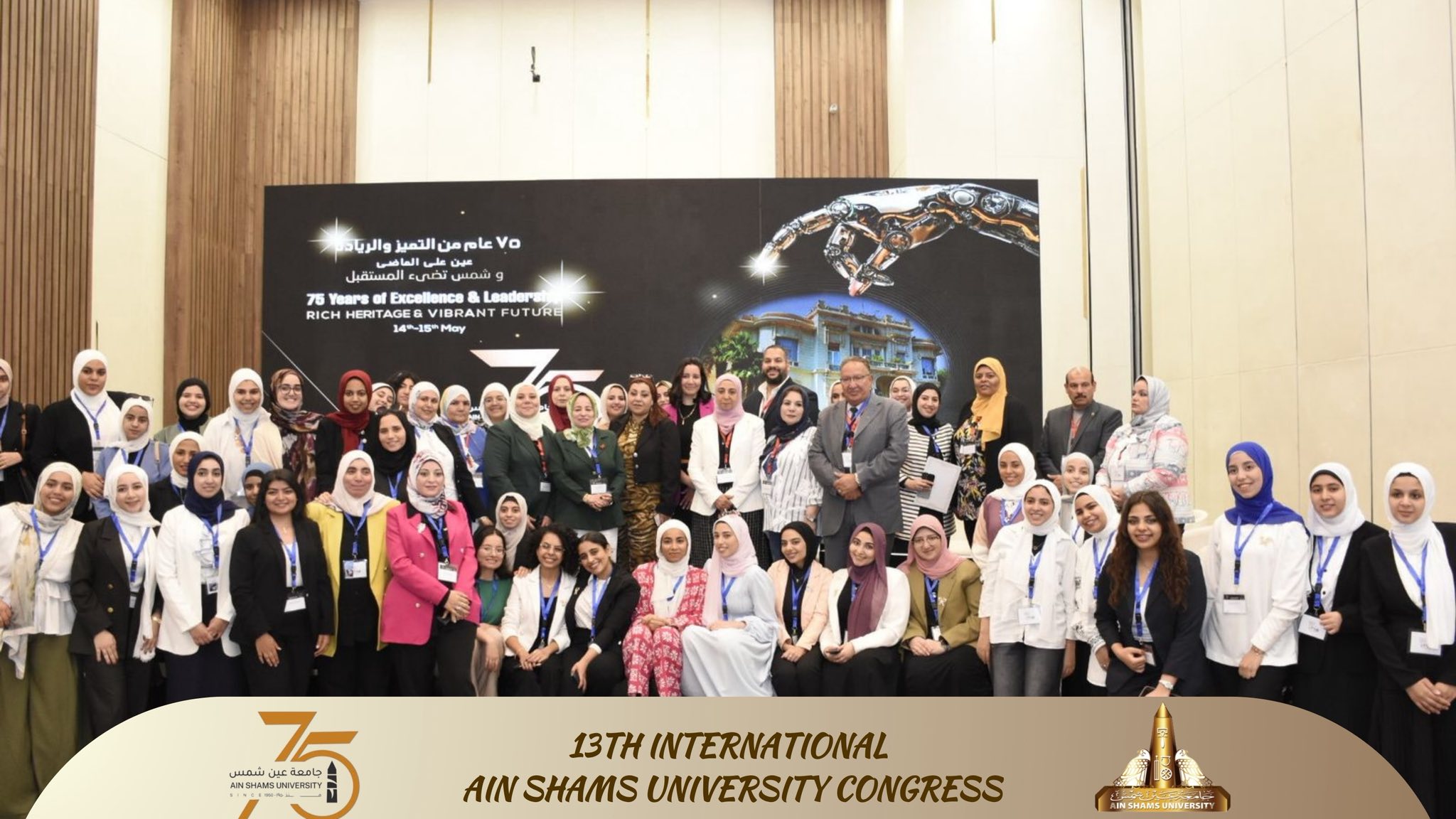 |
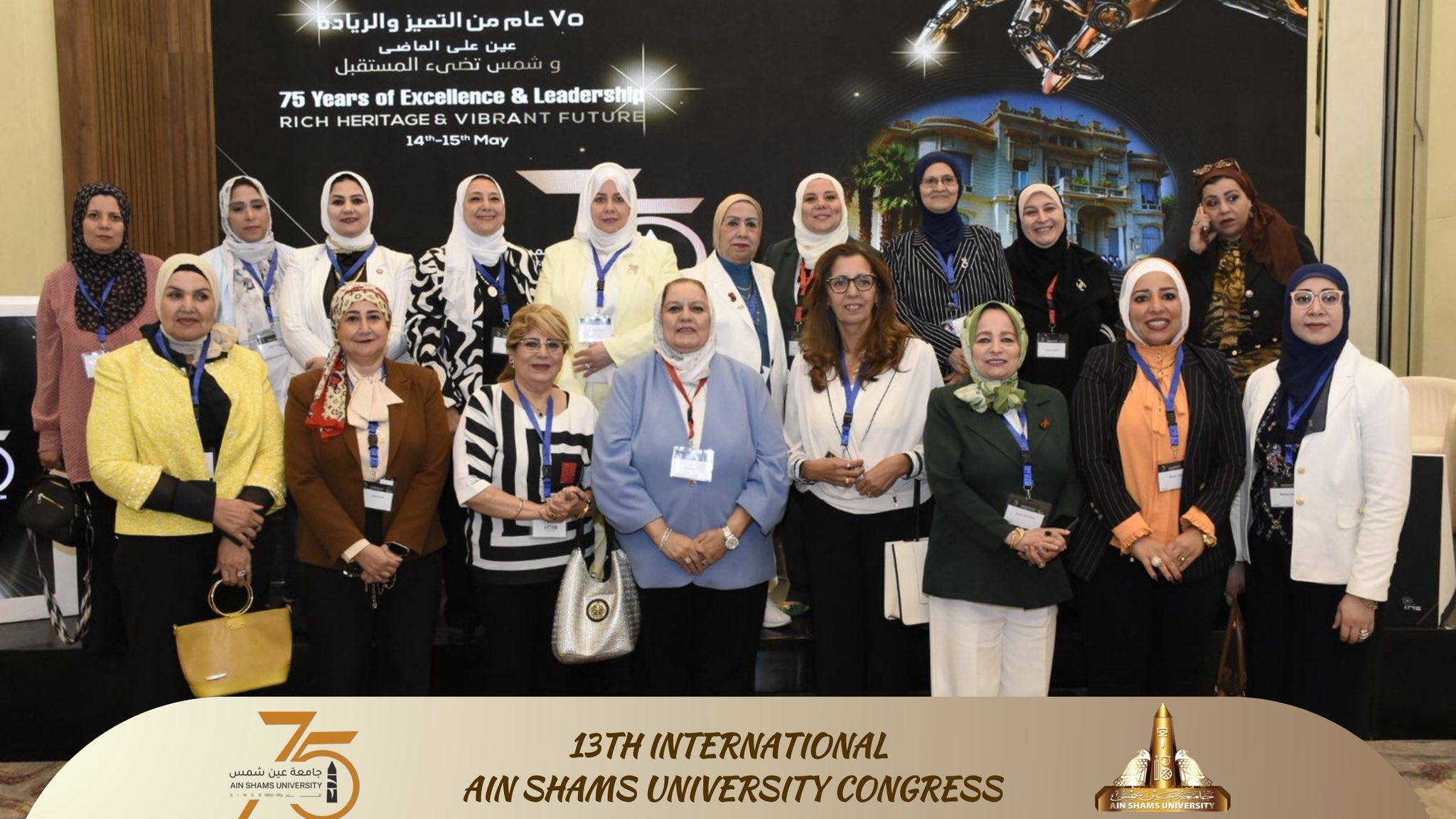 |
||
The recommendations of the fourth annual conference of the Women's Support and Anti-Violence Unit, titled "Justice, Equity, and Inclusion," were as follows:
1- Egypt's Leadership in Women's Empowerment:
The Egyptian experience in supporting and empowering women is a pioneering model not only among Arab countries, but also internationally. This achievement was made possible thanks to the support of the political leadership, the Egyptian Parliament, and executive institutions such as the National Council for Women, the Ministries of Justice, Interior, and Solidarity, among others. However, preserving and developing these gains requires spreading deep societal awareness of women's issues, the importance of women's empowerment, and their vital role in achieving development and progress.
2- The Role of the National Council for Women:
The need to highlight the National Council for Women's initiatives aimed at raising community awareness of women's issues, given that awareness is the fundamental foundation for achieving leadership and success in empowering women.
3- Integrating People with Disabilities:
The importance of integrating students with disabilities with their peers within educational institutions. This promotes a culture of acceptance, develops students' awareness of how to deal with differences, and provides a fair and supportive educational environment that ensures health and educational care for all students, both inside and outside of universities.
4- Women's Economic Empowerment:
Focusing on developing women's personal and personal capabilities and skills, as true empowerment begins with self-empowerment, which is the foundation for any economic or social progress.
5- Supporting Small Businesses:
The need to provide full support to female students through a university environment that stimulates and encourages entrepreneurship, allowing them the opportunity to launch small projects that contribute to their economic empowerment and achieve their ambitions as "small businesswomen."
6- Taking Advantage of Training Opportunities:
Emphasizing the importance of developing female students' personal capabilities and increasing their awareness of self-empowerment by making the most of the training courses and workshops offered by universities during their studies.


.svg)

